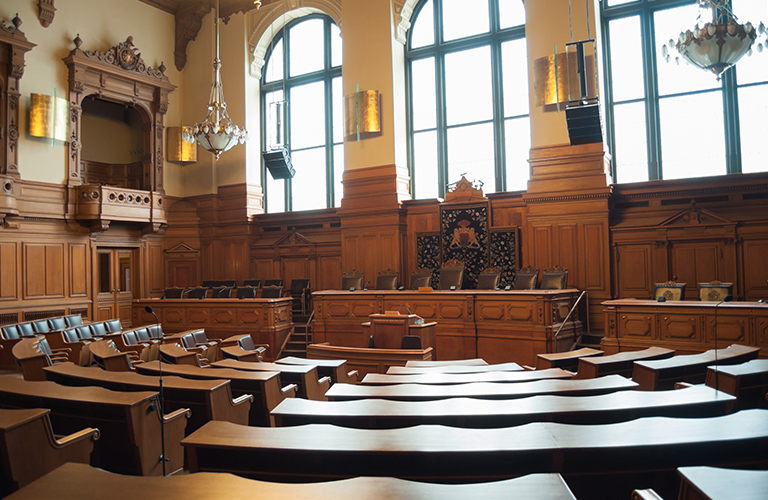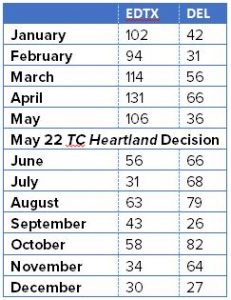
For years, the U.S. District Courts for the Eastern District of Texas and the District of Delaware have seen the most patent infringement cases filed by far over the several other courts spread throughout the United States. Texas led Delaware for years, based in part on a perceived bias in favor of plaintiffs, particularly small ones – including those disparagingly referred to as “trolls” – when going against large, multi-national defendants. It was also generally accepted as true that the judges in Texas were reluctant to grant motions to transfer. This led to tensions, which boiled over into angry resentment for some companies that really didn’t want to be there. While seemingly unfair to some, decades of legal precedent said all you had to do to stay in Texas was show that a defendant was doing business in Texas – sell a smart phone at a Best Buy, and venue would stick.
While Congress was considering anti-Texas venue legislation, the Supreme Court cut the lobbyists off at the pass, as the say in Texas. On May 22, 2017, the Supreme Court decided the case of TC Heartland v. Kraft Foods Group Brands LLC, 137 S.Ct. 1514 (2017), which changed the way patent litigators view the patent venue statute, 28 U.S.C. § 1400 (b). Instead of “where you do business,” TC Heartlands laid down the rule that you must file either where the defendant “resides” (for many, that would be Delaware) or where the defendant has a “regular and established place of business.” On its face, the ruling suggests that you must go where the defendant has its headquarters or similar physical plants.
The impact of TC Heartland was immediate and dramatic. Below is a comparison of patent infringement filings between the Eastern District of Texas and the District of Delaware for 2017:

Prior to TC Heartlands, Texas was averaging 110 patent cases filed per month; afterwards, the average fell to 45, or more than half the pre-Heartland average. Delaware averaged 46 new patent cases pre-Heartland, and 59 afterwards.
Obviously a 1 to 1 shift did not occur between Texas and Delaware, as several other venues picked up traffic besides Delaware, notably the Southern, Central and Northern Districts of California, where regular and established places of businesses in hotly contested technological areas can be found in abundance.
Not long after TC Heartlands, the Eastern District of Texas made a controversial ruling that potentially could keep more cases in Texas. In Raytheon Co. v. Cray, Inc., 20017 WL2813896 (E.D.Tx.), the Court ruled that a salesman working from home could qualify as a “regular and established place of business.” However, Cray filed a Mandamus to the Federal Circuit, which immediately reversed and ordered the case transferred out of Texas. In re: Cray, Inc., ___F.3d___, No. 2017-129 (Fed. Cir. Sept. 27, 2017), much to the relief of those who do not appreciate the hospitality of eastern Texas.
Look for further fights over what is and what isn’t a “regular and established place of business,” but at least for now, look pretty close to home.

